Agriculture Classroom Kits
3rd - 8th Grades
Students will learn the importance of Nebraska’s largest industry – Agriculture. Everyone is involved in this industry either directly or indirectly. Agriculture involves the production, processing, and distribution of food plus the production of fuel and fiber. Agriculture uses science and technology to produce the safest and most abundant food source in the world. Nebraska produces food that is shipped to every state in the United State and every continent in the world.
This portable kit allows teachers to teach at their own pace. Activities in the areas of crop production and livestock production will be an emphasis. Teachers are encouraged to check out the kits and bring them back two weeks later. A great lesson for 4th grade youth to learn about Nebraska’s #1 Industry!
Kit will include activities for up to 30 students. Kits must be picked up and returned by the classroom teacher.
Fee: $25 per kit
Please call the 4-H Office to reserve your kit.
Bridges and Structures
3rd - 8th Grades
Introduce your students to the exciting career of engineering as they develop abilities of technical design. Challenge your students to design a structure to meet a specific need. Students work cooperatively to build a structure and evaluate their design.
Science Standards addressed:
- 5.1.3.a Identify a simple problem
- 5.1.3.b Propose a solution to a simple problem
- 5.1.3.c Implement the proposed solution
- 5.1.3.d Evaluate the implementation
- 5.1.3.e Communicate the problem, design, and solution
- 8.1.3 Students will solve a design problem which involves one or two science concepts
This project includes three 60 minute visits by the 4-H office:
- To work together to build a truss bridge that is big enough for your students to crawl across.
- To explore structures and bridge design using K'Nex®.
- Using craft sticks supplied by the 4-H office, your students will construct their own bridges which will be weight tested at the conclusion of this program.
The third visit needs to be approximately two weeks after the second visit so students have sufficient time to construct their bridge.
Fee for Bridges and Structures: $90 per classroom
* This program offers a project linked to the Sarpy County Fair. If interested, please contact a 4-H professional for more details.
Crime Scene Investigation: DNA
5th - 8th Grades
It’s what makes you, you and me, me. It can also be used to help law enforcement solve crimes. It’s Deoxyribose Nucleic Acid, aka DNA! Students will get the opportunity to learn what DNA actually is and how CSI investigators use it to catch the bad guy. Students will construct DNA using K'Nex®, discover how DNA sequencing aids investigators and finally and finally, students will get to extract their OWN DNA and see it with their own two eyes!
Nebraska's College and Career Ready Standards of Science Addressed:
- SC.5.3.1.C Make observations and measurements to identify materials based on their properties.
- SC.6.6.2.A Conduct an investigation to provide evidence that living things are made of cells; either one cell or many different numbers and type of cells.
This project includes one 90 minute visit with the 4-H Staff.
Class Type: Virtual Instruction + Supply Drop Off
Classroom Requirements: Smart Board, White Board or Chalk Board
Fee for Crime Scene Investigation DNA: $50 per classroom
Dissection - Crayfish
5th - 8th grades
Note to teachers: The content in this class has been modified to meet the needs of learners in grades 5-8. All objectives covered meet or exceed the state standard requirements in science. This course and others like it are excellent in challenging your students to use their full potential in science exploration.
Crayfish belong to the phylum Arthropoda and are in the class Crustacea. Since the crayfish have very specialized appendages, they have become the perfect dissection tool to convey to students the relationship between structure, function and the environment. In this activity a 4-H science teacher will guide your classroom groups through a hands-on step by step tour of the Crayfish.
Nebraska's College and Career Ready Standards of Science Addressed:
- SC.5.8.2.C Develop a model to describe the movement of matter among plants, animals, decomposers, and the environment.
- SC.6.9.3.A Construct an argument based on evidence for how plant and animal adaptations affect the probability of successful reproduction.
- SC.7.7.3.A Construct an explanation that predicts patterns of interactions among organisms across multiple ecosystems.
Recommended teaching time: One 90 minute class period. It can also be done in two - 45 minute class periods on consecutive days but teacher would need to provide quart size zip lock bags for specimen storage.
Class Type: In Person Only
Classroom Requirements: Smart Board, document reader/Elmo, and laptop
Fee for Crawfish Dissection: $85 per classroom
Dissection - Grasshopper
5th - 8th Grades
They may hop all over and eat our garden plants but they are cool to dissect! 4-H Grasshopper Dissection is a unique class where students get to open up and observe the inner workings of a grasshopper; taught be a real entomologist (A scientist who studies insects). Students will be introduced to the world of Insects and how their anatomical adaptations allow them to survive and thrive in the wild.
Nebraska's College and Career Ready Standards of Science Addressed:
- SC.5.8.2.C Develop a model to describe the movement of matter among plants, animals, decomposers, and the environment.
- SC.7.7.3.A Construct an explanation that predicts patterns of interactions among organisms across multiple ecosystems.
- SC.HS.6.1.B Develop and use a model to illustrate the hierarchical organization of interacting systems that provide specific functions within multicellular organisms.
- SC.HSP.6.7.B Develop and use a model to identify and describe the relationship between the structures and physiological processes of the digestive system.
Recommended teaching time: One 90 minute class period. It can also be done in two - 45 minute class periods on consecutive days but teacher would need to provide quart size zip lock bags for specimen storage.
Classroom Requirements: Smart board, document reader/Elmo, and laptop
Fee for Grasshopper Dissection: $55 per classroom
Dissection - Predator/Prey and Owl Pellet

2nd - 5th Grades
Explore the wild world of animal predator/prey relationships by dissecting owl vomit, referred to as owl pellets. Students will get the opportunity to learn about how predators seek out and hunt their prey and additionally how digestion works not only in these owls but also in our own stomachs. Students will discover how our stomachs break down food using acid and they’ll also dissect an owl pellet and determine what the owl ate and how it digests its food. Was it a mouse, rabbit or some other animal? We’ll do a little investigative work to find out!
Nebraska's College and Career Ready Standards of Science Addressed:
- SC.2.7.2.C Make observations of plants and animals to compare the diversity of life in different habitats.
- SC.4.6.3.B Construct an argument that plants and animals have internal and external structures that function to support survival, growth, behavior, and reproduction.
- SC.5.8.2.A Use models to describe that energy in animals’ food (used for body repair, growth, and motion and to maintain body warmth) was once energy from the sun.
- SC.5.8.2.C Develop a model to describe the movement of matter among plants, animals, decomposers, and the environment.
- SC.7.8.4.A Construct a scientific explanation based on evidence for the role photosynthesis in the cycling of matter and flow of energy into and out of organisms.
Class Type: Virtual Instruction + Supply Drop Off
Recommended Teaching Time: One 45 minute session by 4-H Staff
4-H Staff will provide all dissection tools and equipment.
Fee for Owl Pellet Dissection: $85 per classroom
Dissection - Heart
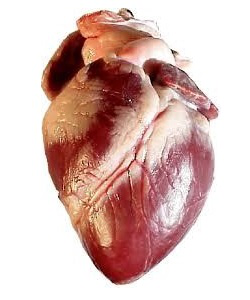
6th - 8th Grades
The human heart is similar in structure and function to the pig’s heart, differing only slightly in detail. Dissecting a pig’s heart allows students to explore the physiological links between organ systems and identify the general structures representative of mammals. In this activity a 4-H science teacher will guide your classroom groups through a “hands-on” step by step tour of the heart.
Your students will:
- Examine the specialized muscular tissue of the heart
- Understand how this organ differs in other animals including humans
- Investigate the interdependence of this organ system
- Gain a deep understanding of the basic physiology of the heart and circulatory system
Nebraska's College and Career Ready Standards of Science Addressed:
- SC.6.6.2.C Use argument supported by evidence for how the body is a system of interacting subsystems composed of groups of cells.
- SC.HSP.6.1.F Construct an explanation based on evidence that animals have structures that function to support survival, growth, behavior, and reproduction.
- SC.HSP.6.6.A Communicate scientific information that explains the patterns of organization in the cardiovascular/respiratory systems.
- SC.HSP.6.6.B Develop and use a model to identify and describe the relationship between the structures and physiological processes of the cardiovascular/respiratory systems.
Class Type: In Person Only
Recommended teaching time: One 90 minute class period.
Classroom Requirements: Laptop and Projector. Document Camera or Elmo is useful.
Fee for Heart Dissection: $185 per classroom
Dissection - Squid
6th - 8th Grades
The squid is an invertebrate, an animal lacking a backbone. Squids are related to clams, snails, nautilus, and octopus and share some very unique traits with each of these organisms.
Although squid are of high commercial value they are so much more important to humanity than being used for bait, food sources and the inspiration behind famous science fiction literature and movies. In this dissection your students will have the opportunity to examine a Cephalopod that is extremely important in the field of human medical research. In this activity a 4-H science teacher will guide your classroom groups through a “hands-on” step by step tour of the Squid.
In this activity a 4-H science teacher will guide your classroom groups through a "hands-on" step by step tour of the Squid.
Your students will:
- Discover where a squid hides it's pin. Yes, squid have a pin just like clams have a shell.
- Extensively examine the external structures and internal organs of squid.
- Learn about squid life cycles and habitat.
- Explore the unique characteristic of this animal's ability to change its color. Students will learn how some members of this group can change their body texture and appearance.
Nebraska's College and Career Ready Standards of Science Addressed:
- SC.5.8.2.C Develop a model to describe the movement of matter among plants, animals, decomposers, and the environment.
- SC.7.7.3.A Construct an explanation that predicts patterns of interactions among organisms across multiple ecosystems.
- SC.HS.6.1.B Develop and use a model to illustrate the hierarchical organization of interacting systems that provide specific functions within multicellular organisms.
- SC.HSP.6.7.B Develop and use a model to identify and describe the relationship between the structures and physiological processes of the digestive system.
Recommended teaching time: One 90 minute class period. It can be done in two - 45 minute class periods on consecutive days but teacher would need to provide quart size zip lock bags for specimen storage.
Class Type: In Person Only
Classroom Requirements: Smart Board, document reader/Elmo, and laptop
Fee for Squid Dissection: $170 per classroom
Electrical Currents
3rd - 6th Grades
Many of us think of electricity as something dangerous, mysterious, complicated, powerful and definitely not to be messed with. But it is also something that all of us use every day. This project includes activities on how electricity works, and basic circuitry.
Nebraska's College and Career Ready Standards of Science Addressed:
- SC.3.1.1.C. Ask questions to determine cause and effect relationships of electrical or magnetic interactions between two objects not in contact with each other.
- SC.4.4.2.B. Make observations to provide evidence that energy can be transferred from place to place by sound, light, heat, and electrical currents.
- SC.5.3.1.A. Develop a model to describe that matter is made of particles too small to be seen.
This project includes three sessions:
- To explore electricity and circuits using household items
- To build simple quiz boards
- Make electricity come to life with Snap Circuits Jr.®
Class Type: Virtual Instruction + Supply Drop Off
Fee for Electrical Currents: $50 per classroom
* This program offers a project linked to the Sarpy County Fair. If interested, please contact a 4-H professional for more details.
Entomology
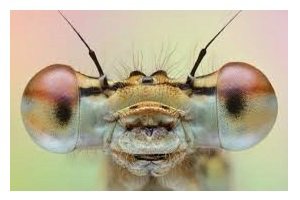
Kindergarten - 6th Grades
Science Standards addressed:
- SC.1.6.2.D Make observations to construct an evidence-based account that young plants and animals are like, but not exactly like, their parents.
- SC.3.9.3.D Use evidence to construct an explanation for how the variation in characteristics among individuals of the same species may provide advantages in surviving, finding mates, and reproducing.
- SC.4.6.3.B Construct an argument that plants and animals have internal and external structures that function to support survival, growth, behavior, and reproduction.
- SC.5.8.2.C Develop a model to describe the movement of matter among plants, animals, decomposers, and the environment.
*Could possibly be combined with butterflies/pollinators
Class Type: Virtual Only
Fee for Entomology: $20 per classroom
Grow a Garden
Kindergarten - 6th Grades
This class will help your class start a small herb garden in your classroom, and provide the curriculum from Team Nutrition to help reinforce information dealing with plant growth, needs, and harvesting. Students will also learn about basic food preparation with their herbs.
Students will learn where their food comes from, how it grows, and the requirements for plant growth. They will also learn basic culinary skills to prepare a simple snack utilizing their herbs.
This class includes two sessions. Session one includes a discussion of the needs of the plants and herbs will be left for the class to grow. During the second session, students will harvest from their garden and prepare and eat a delicious snack.
Class Type: Virtual Instruction + Supply Drop Off
Fee: $50 (up to 30 students)
Grow a Salad
3rd - 4th Grades (It can be used for 1st thru 7th.)
What: A nutrition staff member will visit twice in a span of a month.
Students will learn where their food comes from, how it grows, and the requirements for plant growth. They will also learn basic culinary skills to prepare a simple snack utilizing their herbs.
- Session One: A nutrition staff member will bring Team Nutrition Curriculum on gardening to be used by the teacher as needed. Students will learn about growing microgreens, varieties, characteristics, plant growth, and will plant a small bed of greens to be taken care of for the next month. Students will sample microgreens and discover their flavor differences. A small portable plant bed and plant light will be left with each class.
- Session Two: A nutrition staff member will discuss harvesting techniques for microgreens, their nutritional values, and food safety related to them. Students will harvest greens safely and learn to make a simple dressing for their greens. Samples will be distributed.
Class Type: Virtual Instruction + Supply Drop Off
Fee: $45 (up to 30 students)
Curriculum will cover science, math and food safety.
Kitchen Science - Beginners
1st - 3rd Grades
Let the kitchen become your science lab. Simple ingredients, foods, utensils and containers are used to explore the fascinating world of chemistry (and a little physics too!)
Science Standards addressed:
- 2.1.1 Students will ask questions and conduct investigations that lead to observations and communication of findings
- 2.1.1.a Ask questions that relate to a science topic
- 2.2.1.a Observe physical properties of objects (freezing and melting, sinking and floating, color, size, texture, shape, weight)
- 2.2.2 Students will compare relative position and motion of objects
- 5.2.1 Students will explore and describe the physical properties of matter and its changes
- 5.2.2 Students will identify the influence of forces on motion
Class Type: Virtual Instruction + Supply Drop Off
Fee for Beginning Kitchen Science: $40 per classroom
Kitchen Science - Advanced
4th - 8th Grades
Taking kitchen science experiments to a whole new level by incorporating chemistry and physics into learning with experiments and hands on activities.
Nebraska's College and Career Ready Standards of Science Addressed:
- SC.4.4.2.B Make observations to provide evidence that energy can be transferred from place to place by sound, light, heat and electrical currents.
- SC. 5.3.1.D Conduct an investigation to determine whether the mixing of two or more substances results in new substances.
- SC.7.3.1.D Develop a model that predicts and describes changes in particle motion, temperature, and state of a pure substance when thermal energy is added or removed.
- SC.7.5.2.A Analyze and interpret data on the properties of substances before and after the substances interact to determine if a chemical reaction has occurred.
Objectives:
- To experiment with ordinary kitchen items.
- To predict outcomes.
- To just have fun!
Class Type: Virtual Instruction + Supply Drop Off
Fee for Advanced Kitchen Science: $40 per classroom
Polymers - Slippery Science
Kindergarten - 4th Grades
This class demystifies one of the most beneficial molecules know to humankind...Polymers! Everything around us is made up of elements. They may be solid, squishy, sticky, bendable, or anything else you can think of. Polymers can be natural, like those that make up the trunk of a tree or a chunk of rock, or they can be man made. Man made polymers are everywhere. They make up the stuff we wear, hair gel, tee shirts and even your glue is a man made polymer.
In this class students will observe many common items that are made from man made polymers, be able to distinguish the difference between monomers and polymers and the students will play with a non-Newtonian fluid to discover its mysterious properties!!! And as a big bonus, each student will get to make their own special blend of slime that is theirs to keep.
Nebraska's College and Career Ready Standards of Science Addressed:
- SC.2.3.1.D Make observations to construct an evidence-based account of how an object made of a small set of pieces can be disassembled and made into a new object.
This project requires: One 45 minute visit from one of our 4-H Science Teachers
Fee for Polymers: Please contact the 4-H School Enrichment Staff by calling 402-444-7804 for pricing.
Fuel Up to Play 60
Kindergarten - 12th Grade
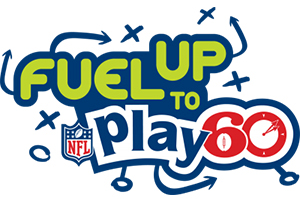
Looking for even more ways to help your school stay active? Fuel Up to Play 60 encourages youth to eat healthy and move more. Studies suggest that well-nourished, physically active kids can be better students. By participating in the program, youth have the opportunity to earn rewards and prizes for their schools, including having an NFL player visit.
Funds are available to improve healthy eating and physical activity options in your school. Up to $4000 per year is available to qualifying K-12 schools enrolled in Fuel Up to Play 60 to kick start healthy changes.
To qualify for the competitive, nationwide funding program, your school must participate in the National School Lunch Program. For more information go to www.fueluptoplay60.com or for help applying for funding contact Extension Educator, Cindy Brison at cbrison1@unl.edu.
Health Rocks!
6th - 11th Grades

Health Rocks! ®: Health Rocks is a preventative health and safety program that motivate young people to maintain and improve their health, prevent disease, and avoid or reduce health-related risk behaviors. This program will provide young people with knowledge and skills they need to be healthy for a lifetime. Though a series of lessons and activities young people will better understanding on how their choices can help themselves and their families. Young people will utilize these health enhancing skills as a means for achieving life’s goals.
National Health Education Standards addressed:
- Standard 1: Students will comprehend concepts related to health promotion and disease prevention to enhance health.
- Standard 2: Students will analyze the influence of family, peers, culture, media, technology and other factors on health behaviors.
- Standard 3: Students will demonstrate the ability to access valid information and products and services to enhance health.
- Standard 4: Students will demonstrate the ability to use interpersonal communication skills to enhance and avoid or reduce health risks.
- Standard 5: Students will demonstrate the ability to use decision-making skills to enhance health.
- Standard 6: Students will demonstrate the ability to use goal-setting skills to enhance health.
- Standard 7: Students will demonstrate the ability to practice health-enhancing behaviors and avoid or reduce health risks.
- Standard 8: Students will demonstrate the ability to advocate for personal, family and community health.
Health Rocks! Is a healthy living program designed to?
- Reduce youth smoking and tobacco use.
- Help youth build life skills that lead to healthy lifestyle choices with special emphasis on youth smoking and tobacco use prevention.
- Help youth understand influences and health consequences of tobacco, alcohol, and drug use to make healthy choices.
- Engage youth and adults in partnerships to develop and implement community strategies that promote healthy lifestyle choices.
- Build positive, enduring relationships, with youth involved as full partners, through widely varying “communities of interest” to address risk behaviors of youth.
This Program requires: Three 45 minute visits from our 4-H staff.
Fee for Health Rocks: $30 per classroom
Schedule a health day and brings this workshop to your school today.
Rate That Plate Kit
3rd - 4th Grades
Students will enjoy learning about:
- Nutrients
- Using MyPyramid for Kids to make healthy food choices
- How eating healthy foods makes them feel good
- Eating a healthy breakfast
What's in the kit?
- Five lesson plans approximately 1 to 2 hours in length
- Additional activities to complement each lesson
- Supplies and handout copies for every student!
How does it work?
- Nutrition staff delivers the kit directly to the classroom and teaches the first lesson
- Kit remains with the teacher for up to 3 weeks
- Teacher decides how to work the lessons into their schedule
- Nutrition staff returns to the classroom to pick up the kit and leads students in preparing a healthy snack
Fee for Rate That Plate: $45 per classroom (up to 30 students)
Student Tools for Emergency Planning (STEP)
6th - 8th Grades
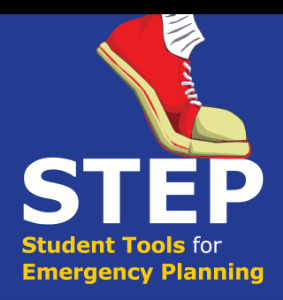
Student Tools for Emergency Planning, or STEP, is an emergency preparedness curriculum designed by FEMA. Emergency preparedness education equips students with concrete strategies to survive various emergencies and natural disasters and to become leaders in family preparedness. Youth will learn how to create a disaster supply kit and develop a family emergency communication plan.
Health Education State Standards addressed:
- Standard 4: Students will demonstrate the ability to use interpersonal communication skills to enhance and avoid or reduce health risks.
- Standard 5: Students will demonstrate the ability to use decision-making skills to enhance health.
- Standard 6: Students will demonstrate the ability to use goal-setting skills to enhance health.
- Standard 7: Students will demonstrate the ability to practice health-enhancing behaviors and avoid or reduce health risks.
This Program requires: Two 30 minute visits from our 4-H staff
Fee for S.T.E.P.: $20 per classroom
Living Soils
3rd - 5th Grades
Students will learn about soil as they discover the soil’s profile (layers), composition of soil and understand basic nutrients found in the soil plants require. Students will experience the concepts through interactive lessons.
Science Standards addressed:
- 5.1.1.a Ask testable scientific questions
- 5.1.1.b Plan and conduct investigations and identify factors that have the potential to impact the investigation
- 5.1.1.c Select and use equipment correctly and accurately
- 5.1.1.d Make relevant observations and measurements
- 5.1.1.e Collect and organize data
- 5.1.1.f Develop a reasonable explanation based on collected data
- 5.1.1.g Share information, procedures and results with peers and/or adults
- 5.4.2.a Describe the characteristics of rocks, minerals, soil, water and the atmosphere
- 5.4.2.b Identify weathering, erosion, and deposition as process that build up or break down Earth’s surface
Teachers may select the program in three options.
- One 90 minute session including both lessons
- Each 45 minute lesson on different days
- One 45 minute lesson
Lesson 1: Understanding the Soil Profile
Lesson 2: Basic Nutrients in the Soil
Fee: Please contact the 4-H School Enrichment Staff by calling 402-444-7804 for pricing.
First Time Physics
Kindergarten - 3rd Grades
Unlock the door to the world of physical sciences. Come and explore activities that investigate sound and light energy. Each students will get refraction glasses.
Science Standards addressed:
- 2.1.1.b Conduct simple investigations
- 2.1.1 Students will observe and describe properties of objects and their behavior
- 5.2.2 Students will identify the influence of forces on motion
- 5.2.3.a Recognize that sound is produced from vibrating objects; the sound can be changed by changing the vibration
- 5.2.3.b Recognize that light travels in a straight line and can be reflected by an object (mirror)
- 5.2.3.c Recognize that light can travel through certain materials and not others (transparent, translucent, opaque)
Objectives:
- To investigate how sound can travel.
- To find out how light rays slow down and can be bent.
Class Type: Virtual Instruction + Supply Drop Off
Fee for First Time Physics: $20 per classroom (up to 30 students)
Rockets - Beginning
2nd - 3rd Grades
Please check back for the class description.
Rockets - Intermediate
4th - 8th Grades
Please check back for the class description.
Rockets - Advanced
6th - 12th Grades
Please check back for the class description.
Dynamic T.L.C. : Team Building, Learning, and Communication
3rd - 6th Grades
Team building is the process of turning a group of individuals in to a cohesive team. During this active session, we will provide students with opportunities to engage in challenges that promote team building, communication, problem solving, leadership, and build trust among their peers. This experience will test your classroom’s group dynamics and challenge student leadership to think outside the box.
Needs Considerations for this program:
- Large space - such as a gym or outdoor area
- Students are required to wear close-toed shoes/ sneakers
- Knowledge of any limitations of participants
This active session includes one visit by a teacher from the 4-H Office:
- Pre-visit conversation with the teacher to discuss desired outcomes
- 60 to 90 minutes of hands-on instruction by a trained 4-H staff member
- Engage Students in challenges that promote teambuilding, communication, problem solving, leadership, and build trust among their peers
- Active debriefing of the youth’s experience
- Post experience conversation with the teacher regarding perceived outcomes
Dynamic T.L.C. : Team Building, Learning, and Communication: $60 per classroom (up to 30 students)
Farm in a Glove
1st - 5th Grades
Knowledge about agriculture in Nebraska is important. Students will learn about Nebraska agriculture, parts of a plant & grow common crops in a glove.
Nebraska's College and Career Ready Standards of Science Addressed:
- SC.1.6.2.B Develop a simple sketch, drawing, or physical model to illustrate how the shape of an object helps it function as needed to solve a given problem.
- SC.3.9.3.A Develop models to describe that organisms have unique and diverse life cycles but all have in common birth, growth, reproduction, and death.
Class Type: Virtual Instruction + Supply Drop Off
Fee: $20.00 per classroom
Classroom requirements: Access to sunlight
Teaching time: 2 - 45 minute sessions
Amphibians/Aquatic Ecology
Kindergarten - 8th Grades
Learn about the different species of amphibians in Nebraska while learning about the differences between frogs and toads. Discover how metamorphosis works in frogs, toads, and salamanders. Students will also identify the ecological significance of amphibians in the environment. Students will also learn to identify frogs and toads based on calls. Live specimens are shown.
Nebraska's College and Career Ready Standards of Science Addressed:
- SC.K.7.2.A Use observations to describe patterns of what plants and animals (including humans) need to survive.
- SC.1.6.2.D Make observations to construct an evidence-based account that young plants and animals are like, but not exactly like their parents.
- SC.3.9.3.A Develop models to describe that organisms have unique and diverse life cycles but all have in common birth, growth, reproduction, and death.
- SC.5.8.2.C Develop a model to describe the movement of matter among plants, animals, decomposers, and the environment.
Class Type: Virtual Only
Fee: $20.00 per classroom, up to 30 students
Teaching time: 45 minutes
Butterflies and Pollinators
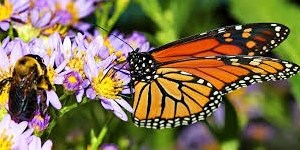
Kindergarten - 6th Grades
Students will receive a live butterfly classroom experience! This program teaches life cycles, metamorphosis, and insect parts. Students can observe the live specimens transform from caterpillars to chrysalides to butterflies with their own butterfly observation box. The students will also get a real look at the important roles pollinators like butterflies, moths and bees have on our daily lives.
Nebraska's College and Career Ready Standards of Science Addressed:
- SC.K.7.2.A Use observations to describe patterns of what plants and animals (including humans) need to survive.
- SC.1.6.2.D Make observations to construct an evidence-based account that young plants and animals are like, but not exactly like their parents.
- SC.2.7.2.B Develop a simple model that mimics the function of an animal in dispersing seeds or pollinating plants.
- SC.3.9.3.A Develop models to describe that organisms have unique and diverse life cycles but all have in common birth, growth, reproduction, and death.
- SC.7.8.4.C Analyze and interpret data to provide evidence for the effects of resource availability.
This class is only available in April to October. Limited availability so please order early.
Class Type: Virtual Instruction + Supply Drop Off
Fee: $30.00 per classroom, up to 30 students.
Classroom requirements: None
Teaching time: 45 minutes
Microbiology

5th - 12th Grades
Discover the invisible world of microbes by sampling, plating, and analyzing different colonies and species of microorganisms present in your own school! The students will get a crash course in microbiology and learn about different types of salmonella’s and E coli’s that are present in the environment and on your food. Many are harmless but many can make you very sick. Additionally, the class will focus on good bacteria and yeasts that make up our food that we eat!
Class Type: Virtual Instruction + Supply Drop Off
Fee: $75 per classroom, up to 30 students
Teaching time: This will be two 45 minute classes. Two days will need to be scheduled within the week to allow the microorganisms to grow on the agar plates.
T.E.C. Box
3rd - 5th Grades
Nebraska's College and Career Ready Standards of Science Addressed:
- SC.3.7.2.E Generate and compare multiple possible solutions to a problem based on how well each is likely to meet the criteria and constraints of the problem.
- SC.4.4.2.E Plan and carry out fair tests in which variables are controlled and failure points are considered to identify aspects of a model or prototype that can be improved.
- SC.5.13.4.E Define a simple design problem reflecting a need or a want that includes specified criteria for success and constraints on materials, time, or cost.
Tinker. Explore. Create. (TEC) Box is an experiential learning and maker movement activity that actively engages learners, encourages them to think for themselves, work hard, and ultimately learn more. TEC Box was developed to introduce youth to the idea of entrepreneurship; encourage active listening that leads to empathy, facilitate creative problem solving, and focus on the non- technical aspects of entrepreneurship. Through the TEC Box program, your students will engage with entrepreneurship and utilize their innovative spark!
Class Type: Virtual Instruction + Supply Drop Off
Fee: $40 per classroom
Classroom requirements: None
Teaching time: Four to six 45 minute sessions
Ozobots
K - 6th Grades
Pique youth’s interest in computer science by exploring codes and programs using the Ozobot! The Ozobot is a miniature robot with color sensors that allow it to follow lines and read color codes to complete commands. In this program, youth will learn and draw basic color codes, integrate color codes into storytelling, and use Ozoblockly – an online coding program to explore sequential block coding.
Science Standards addressed:
- CCSS.MATH.PRACTICE.MP1 Make sense of problems and persevere in solving them.
- CCSS.MATH.PRACTICE.MP5 Use appropriate tools strategically.
- CCSS.MATH.PRACTICE.MP7 Look for and make structure.
This project includes three sessions with a teacher from the 4-H office:
- To explore the Ozobot and the use of color codes
- To re-create classic fairytales using the Ozobot and integrating color codes
- To introduce drag-and-drop, sequential color coding using the Ozoblockly app to program the Ozobot
Class Type: Virtual Instruction + Supply Drop Off
Fee: $50 per classroom
Makey Makey
K - 8th Grades
The Makey Makey is an electronic invention kit for all ages that allows everyday conductive objects, combined with the internet, to become computer keys! Join the maker movement by bringing your imagination and creativity to life through this computer science program. This project includes activities that incorporate basic circuitry, introductory scratch coding, and instrument creation.
Science Standards addressed:
- Develop a model to describe phenomena.
- Use a model to test interactions concerning the functioning of a natural system.
- Define a simple design problem reflecting a need or a want that includes specified criteria for success and constraints on materials, time, or cost.
- Evaluate competing design solutions using a systematic process to determine how well they meet the criteria and constraints of the problem.
This project includes three sessions with a teacher from the 4-H office:
- To explore basic circuitry and the science behind Makey Makey using conductive materials for key creation
- To build simple instruments (i.e. guitars and pianos), connect to Makey Makey, and create a class Rock Band
- To learn introductory Scratch coding and apply computer science concepts to programming youth-created instruments
Class Type: Virtual Instruction + Supply Drop Off
Fee: $40 per classroom
Inventure Day
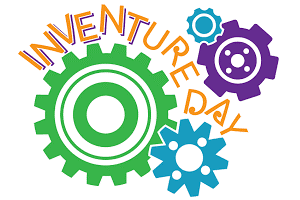
6th - 8th Grades
Students will grow an entrepreneurial mindset during this day-long event. After given a "widget," students will work in teams to create a new product that will serve the needs of their community by learning about target markets, branding & marketing, and financing. Teams will participate in a Quick Pitch competition at the end of the day to win a trip to UNL's Innovation Campus. This program is best run in a large, grade-wide setting.
Nebraska's College and Career Ready Standards of Science Addressed:
- SC.6.4.1.B Define the criteria and constraints of a design problem with sufficient precision to ensure a successful solution, taking into account relevant scientific principle and potential impacts on people and the natural environment that may limit possible solutions.
- SC.7.7.3.C Evaluate competing design solutions using a systematic process to determine how well they meet the criteria and constraints of the problem.
- SC.8.1.1.B Develop a model to generate data for iterative testing and modification of a proposed object, tool, or process such that an optimal design can be achieved.
Fee: $15 per student, minimum of 50 students
Class room requirements: TBD after registration
Teaching time: Pre-lessons = one to six 45 minute sessions, Field Day = approx. 6 hours
National Youth Science Day - Code Your World!

2nd - 8th Grades
Computer Science and coding are the future desires for a lot of today’s youth. It’s also one of the fastest growing industries to date. With Code your World, youth will get the opportunity to explore Scratch and CS First which allows the youth explore elementary coding concepts to “Animate A Name” and “Code Your Dance.” Both of these activities build on computer coding concepts that is hoped to spark intrigue in inquiry into the every changing world of computer science!
*Please indicate which project you’d like to have brought to your classroom. May also choose both for a 90 minute total presentation.
- Animate a Name (45 minutes)
- Code Your Dance (45 minutes)
Fee: $45 per classroom, up to 30 students ($90 per classroom for both lessons)
Classroom requirements: Computers for each student or pairs of students, Internet access. *If neither is available, we can provide computers. Please confirm when registering for the class.
Teaching time: 45 minutes or 90 minutes
Cooking with Kids, the MyPlate Way
2nd - 6th Grades
*This class is only available for qualifying schools, due to grant funding. Schools where 50% of more of students receive free or reduced prices meals.
Fee: No Cost
Length of Program: 45-minute class
Location: virtually through Zoom
Class Objectives:
Students will learn how to:
- Make a healthy meal, the MyPlate way
- Balance fun foods with everyday foods
- How to read a recipe and some basic cooking skills
Cooking Skills 101 for Young Children
1st - 3rd Grades
*This class is only available for qualifying schools, due to grant funding. Schools where 50% of more of students receive free or reduced prices meals.
Fee: No Cost
Length of Program: 45-minute class
Location: virtually through Zoom
Class Objectives:
Students will learn how to:
- Basic cooking skills; measure ingredients, cracking an egg, mixing, etc.
- Handwashing, food and kitchen safety
- How use basic cooking equipment and tools
- How to prepare a recipe
Cooking Skills 101 for Tweens & Teens
4th - 8th Grades
*This class is only available for qualifying schools, due to grant funding. Schools where 50% of more of students receive free or reduced prices meals.
Fee: No Cost
Length of Program: 45-minute class
Location: virtually through Zoom
Class Objectives:
Students will learn how to:
- Basic cooking skills; measure ingredients, cracking an egg, mixing, etc.
- Handwashing, food and kitchen safety
- How use basic cooking equipment and tools
- How to prepare a recipe
LEGO WeDo Robots
Kindergarten - 5th Grades
LEGO WeDo Robots are designed to help youth learn how to assemble robots as a group through a step by step process. During this one session program, youth will get to program and code robots to perform specific tasks using iPads or tablets.
Standards:
- K-2-ETS1-2 Develop a simple sketch, drawing, or physical model to illustrate how the shape of an object helps it function as needed to solve a given problem.
- SC.3.1.1 Gather, analyze, and communicate evidence of forces and their interactions.
- ISTE-4d Students exhibit a tolerance for ambiguity, perseverance and the capacity to work with open-ended problems.
- ISTE-1d Students understand the fundamental concepts of technology operations, demonstrate the ability to choose, use and troubleshoot current technologies and are able to transfer their knowledge to explore emerging technologies.
- ISTE-1a Students articulate and set personal learning goals, develop strategies leveraging technology to achieve them and reflect on the learning process itself to improve learning outcomes.
This project includes one visit by a teacher from the 4-H office:
- K - 2nd
- Assemble and code a robot that moves forward and backward
OR - Engineer and code a robot with a sensor that detects objects in front of it
- Assemble and code a robot that moves forward and backward
- 3rd - 5th
- Assemble and code a robot that tests the stability of other objects
OR - Engineer and code a robot that has a pulling mechanism
- Assemble and code a robot that tests the stability of other objects
Class Type: In Person Only
Fee: $40
Space Science - Understanding Time
5th - 8th Grades
During this 3 session program, youth will be learning about how the interactions between the Sun, Earth, and Moon affect how days, months, seasons, and years are monitored and experienced on Earth.
Science Standards addressed:
- SC.5.11.3.B Support an argument that differences in the apparent brightness of the sun compared to other stars is due to their relative distances from the Earth.
- SC.5.11.3.C Represent data in graphical displays to reveal patterns of daily changes in the length and direction of shadows, day and night, and the seasonal appearance of some stars in the night sky.
- SC.8.11.6.A Develop and use a model of the Earth-sun-moon system to describe patterns of the cyclic patterns of lunar phases, eclipses of the sun and moon, and seasons.
This project includes three visits by a teacher from the 4-H office:
- To understand the concept of time in a day by exploring the earth's position relative to the sun by creating sun dials
- To identify and understand the monthly lunar cycle by assembling a wheel dial
- To learn the reasons for the seasons and eclipses by creating a paper model
Class Type: Taught virtually and in person
Fee for Space Science: $35 per classroom
LEGO EV3 Robots
3rd - 8th Grades
LEGO EV3 Robots are designed to encourage computational thinking and teamwork. During this program, youth will engineer attachments to customize their robot designs and will learn to code using LEGO Education Software on iPads and laptops to get their robots to perform specific tasks and challenges.
This project includes one visit by a teacher from the 4-H office.
Class Type: In person
Fee: $50 per classroom
Mars Base Camp - 4-H STEM Challenge
4th - 8th Grades
Mars Base Camp is designed to help youth explore science, technology, engineering and math.
Activities include:
- Landing Zone Surveyor - This activity is a game that lets you explore landing on Mars and learning about its surface.
- Red Planet Odyssey - Build a model rover and problem solve.
- Crop Curiosity - A card game designed to help youth learn about growing food on Mars.
- Insight from Mars - Have youth tell a story about something they learned about Mars using Scratch, an online block-based coding system.
This project includes two visits by a teacher from the 4-H office.
Class Type: In person
Fee: $50 per classroom
Civic Engagement: Games for Change
6th - 8th Grades
Civic Engagement: Games for Change is an experiential learning experience to teach students about the three branches of government and their roles and functions, as well as the fourth branch, which is about the rights and responsibilities of individuals. The enrichment consists of four sessions. Each session includes the main content, an interactive online game called iCivics (e.g., Executive Command, Branches of Power, County Work) to reinforce the lesson, and a class discussion to reflect on what was learned. Students will also participate in an impact point challenge through which they can donate their game points to actual community organizations.
Nebraska's College and Career Ready Standards of Social Studies Addressed:
- SS 6.1.1 Investigate the foundations, structures, and functions of governmental institutions.
- SS 6.1.1.b Identify the development of written laws and artifacts.
- SS 6.1.2 Investigate the roles, responsibilities, and rights of citizens.
- SS 8.1.1 Investigate and analyze the foundation, structure, and functions of the United States government.
Nebraska Standards for Career Readiness Addressed:
- 4. Makes sense of problems and perseveres in solving them
- Recognizing and solving problems is a daily requirement of nearly every American worker and entrepreneur. From small technical issues, to group dynamics, to design of overall systems, opportunities abound for the career ready individual to solve problems in the workplace.
-
- Perceptiveness
- Problem Solving
- Perseverance/Work Ethic
- 5. Uses critical thinking
- Nearly all careers now require interaction with complex systems of technical components, complex dynamics of people or both. Many decisions are not simple and straightforward; rather, they require the ability to intelligently reason through and make complex decisions.
-
- Critical Thinking
- Decision-Making
- Adaptability
Civic Engagement: Media Literacy
6th - 8th Grades
Civic Engagement: Media Literacy is an experiential learning experience that walks students through identifying different media content, evaluating their purpose and validity. In the session, students will dissect different media examples to critically think about the target audience, the message, and the strategies that are being employed. Students will play an interactive online game called iCivics (NewsFeed Defender) and evaluate the source of information and assess whether the sources are credible.
Nebraska's College and Career Ready Standards of Social Studies Addressed:
- SS 6.4.2 Use multiple perspectives to identify the historical, social, and cultural context of past and current events.
- SS 7.1.2.c Explain the roles and influence of individuals, groups, and the media on governments in an interdependent society.
- SS 8.1.2.e Compare and contrast the roles and influences of individuals, groups, and the media on American government.
Nebraska Standards for Career Readiness Addressed:
- 5. Uses critical thinking
-
- Demonstrates the ability to reason critically and systematically.
- Uses reason and logic to evaluate situations from multiple perspectives.
- Critiques possible solutions using valid research, historical context, and balanced judgment.
Smart Cents - Financial Literacy
6th - 8th Grades
Smart Cents is a financial literacy program delivered through hands-on application and practice of everyday economic activities. This streamlined course serves to build a foundation of financial skills and habits that will set young learners up for long-term success! Smart Cents is delivered in four sessions: (1) financial decision making, (2) spending/saving, (3) credit/debt, and (4) income/employment. Each session includes engaging individual and group activities provided by the Smart Cents activity guide and program facilitator.
Class Objectives:
Students will be able to:
- Identify what motivates their decisions for spending, saving and managing money.
- Identify different ways to earn money.
- Learn the steps needed to track expenses and create a budget.
- Learn the advantages and disadvantages of using credit.
- List the required skills, education, work environment, and salary of a career field they are interested in pursuing.
Fee: $100 per classroom
Length of program: 4 sessions, 60 minutes each
Location: In your classroom
Intro to Awesome Aquifers
5th - 7th Grades
Water is essential to human life. The water humans use comes either from surface water (a lake or river) or from groundwater (an aquifer). In this lesson, youth will work in small groups to build an aquifer! In doing so, they will learn the difference between surface and ground water sources, how they are connected, and other key components of these sources.
Nebraska’s College and Career Ready Standards of Science Addressed:
- SC.7.7.3.C Evaluate competing design solutions using a systematic process to determine how well they meet the criteria and constraints of the problem.
- SC.7.13.5.C Construct an argument supported by evidence for how increases in human population and per-capita consumption of natural resources impact Earth's systems.
Awesome Aquifers, Part II: Water Quality
5th - 7th Grades
More than 85% of Nebraskans rely on groundwater for drinking and daily use. In this lesson, youth will explore the quality of water used for drinking. Through hands-on learning through aquifer simulation building, youth will gain understanding on how groundwater sources become polluted, learn about visible and invisible contaminants, and how this water can be treated.
Nebraska’s College and Career Ready Standards of Science Addressed:
- SC.7.7.3.C Evaluate competing design solutions using a systematic process to determine how well they meet the criteria and constraints of the problem.
- SC.7.13.5.C Construct an argument supported by evidence for how increases in human population and per-capita consumption of natural resources impact Earth's systems.
Water Pump Comparison
5th - 8th Grades
Water is essential to human life. The water humans use comes either from surface water (a lake or river) or from groundwater. Many of us are accustomed to just turning on a faucet to get our water. However, the water flowing out of a faucet has been transported to us, which requires pipes and energy to pump the water. In some parts of the world, and during times of natural disasters, the infrastructure and energy required for easy access to water may not be available. In this lesson, youth will learn about methods for water collection by physically testing and collecting data on the efficiency of three different water pump systems (Archimedes screw, solar water pumps, and manual pumps). This lesson will be a treat for the kinesthetic learner!
Nebraska’s College and Career Ready Standards of Science Addressed:
- SC.7.7.3.C Evaluate competing design solutions using a systematic process to determine how well they meet the criteria and constraints of the problem.
- SC.7.13.5.C Construct an argument supported by evidence for how increases in human population and per-capita consumption of natural resources impact Earth's systems.
Intro to How Solar Panels Work
5th - 8th Grades
A growing trend is to install separate solar panels for each home, neighborhood, or village. These systems need to be carefully designed to provide adequate electricity for the needs and wants of the people. In this lesson, youth will learn intro to circuitry concepts as they play a fun game that helps them learn how solar panels work. Solar panels wired in series and parallel provide different voltage and amperage measurements. In this lesson, youth will discover the voltage and amperage characteristics of series and parallel circuits
Nebraska’s College and Career Ready Standards of Science Addressed:
- SC.6.4.1 Gather, analyze, and communicate evidence of energy.
- SC.7.8 Gather, analyze, and communicate evidence of the flow of energy and cycling of matter in organisms and ecosystems.
- SC.8.4 Gather, analyze, and communicate evidence of energy.
How Solar Panels Work, Part II: Solar Water Pumping
5th - 8th Grades
This activity provides as a great follow-up lesson to the Intro to How Solar Panels Work lesson. In this activity, youth will learn how to wire solar panels into series and parallel formations and apply that knowledge to test how different series and parallel configurations impact water pumping. Youth will be challenged to use the Engineering Design Process to see who can come up with the most efficient wiring configuration to pump water the fastest.
Nebraska’s College and Career Ready Standards of Science Addressed:
- SC.6.4.1 Gather, analyze, and communicate evidence of energy.
- SC.7.8 Gather, analyze, and communicate evidence of the flow of energy and cycling of matter in organisms and ecosystems.
- SC.8.4 Gather, analyze, and communicate evidence of energy.
Biomedical Engineering
4th - 8th Grades
Do you enjoy learning STEM and have an interest in learning about real-world medical problems? In this engaging hands-on program, youth will use the engineering design process to work through Biomedical Engineering challenges. Youth will get to participate in activities like Nanotechnology in the Body, Laparoscopic Surgery, Biomedicine in Space, and Prosthetics and Pills. Youth will also get to experience a Biomedical Career Day where they will listen and work with staff from UNMC. Youth won't want to miss it! This virtual camp session is hosted in partnership with Imagine Science!
- Program Options:
- Select from the following lessons:
- Backpack Challenge (1.5 hr. session)
- Mars ER (1.5 hr. session)
- Laparoscopic Surgery (3 – 1 hr. sessions)
- Prosthetics – (1.5 hr. session)
- Pills (1.5 hr. session)
- Nanotechnology in the Body (3 - 1 hr. sessions)
- Biomedicine in Sports – Exploration of concussion prevention (1.5 hr. session)
- Career Day – AutoCAD Skeleton Creation (1.5 hr. session)
- FREE access to all virtual camp lesson videos, supply lists, and supplemental documents using this link: https://4h.unl.edu/imagine-science
- Select from the following lessons:
- Class Type: In-person taught mini-series of lessons
- Fee: $90 (3 - 1 hr. sessions OR 2 - 1.5 hr. sessions)
Telescopes
3rd - 8th Grades
In this engaging, hands-on workshop based on the 4-H STEM Challenge Stellar Optics, youth will build their very own refracting telescopes. Expand your universe by joining us as we learn about physics, light, and how telescopes have been used to explore space and the fascinating world of constellations!
- Fee: $5 per youth
- Group Size: 15
- Location: Douglas-Sarpy Extension Office or other location upon request
Youth STEM & 4-H Fashion Offerings (Sewing & E-textiles)
3rd - 12th Grades
Learn to design and create soft circuits with a series of sewing and soft circuit classes that increase in complexity. These activities will invite youth to consider technology in a more creative context or...consider creativity in a technical context all while learning important life skills.
- Program Options:
- Intro to Sewing
- Descripiton: In this lesson, youth will learn basic sewing skills. Use of sewing equipment (i.e. cutting, patterns & sewing machines) to sew a cloth face mask or zipper bag.
- Price: $10 per youth
- Duration: 3 sessions of 1.5 hours each
- Light-up Patch
- Descripiton: In this lesson, youth will be introduced to circuits & sewing with conductive thread. Youth will create a soft circuit connecting a LED & battery to create a light-up patch.
- Option 1: $5 per youth (hand-sewing only - left photo)
- Option 2: $10 youth (hand and machine sewing - right photo)
- Duration: 2 sessions of 1.5 hours each
- Light-up T-Shirt/Hat
- Descripiton: In this lesson, youth will learn what constitutes a series circuit to decorate a t-shirt or hat that incorporates multiple lights!
- Price: $25 per youth
- Duration: 2-3 sessions of 1.5 hours each
- Glo Big Red Sweatshirt
- Descripiton: Design & light a holiday/school themed sweatshirt that lights up! Multi-light circuits will be explored with more options for multiple circuits and light options.
- Price: $50 per sweatshirt
- Duration: 3-4 sessions of 1.5 hours each
- Codable Jewelry
- Descripiton: Build and code a light-up accessory that changes color and flashes. Students will learn basic hardware construction and how to code light-up wearable jewelry using Adafruit Gemma components
- Price: $75 per youth
- Duration: 3-4 sessions of 1.5 hours each
- Intro to Sewing
- Group Size: 15
- Location: Douglas-Sarpy Extension Office or other location upon request
Spa Science
3rd - 12th Grades
Join us as we explore chemical engineering at its finest! Have you ever thought about who creates the soap that you use when you take showers or when you wash your clothes? How about sugar scrubs or candles that you enjoy? In this engaging workshop, you will learn some history and the science behind the creation of common spa products as you create your very own!
- Fee: $15 per youth
- Group Size: 15
- Location: Douglas-Sarpy Extension Office or other location upon request
Smart Cents
6th - 8th Grades
Smart Cents is a financial literacy program delivered through hands-on application and practice of everyday economic activities. This hands-on workshop serves to build a foundation of financial skills and habits that will set young learners up for long-term success! In this engaging workshop, youth will learn about (1) financial decision making, (2) spending/saving, (3) credit/debt, and (4) income/employment. These engaging individual and group activities are provided by the Smart Cents activity guide and workshop facilitator.
- Fee: $5 per youth
- Group Size: 20 max
- Location: Douglas-Sarpy Extension Office or other location upon request
To register for this class complete the form below.